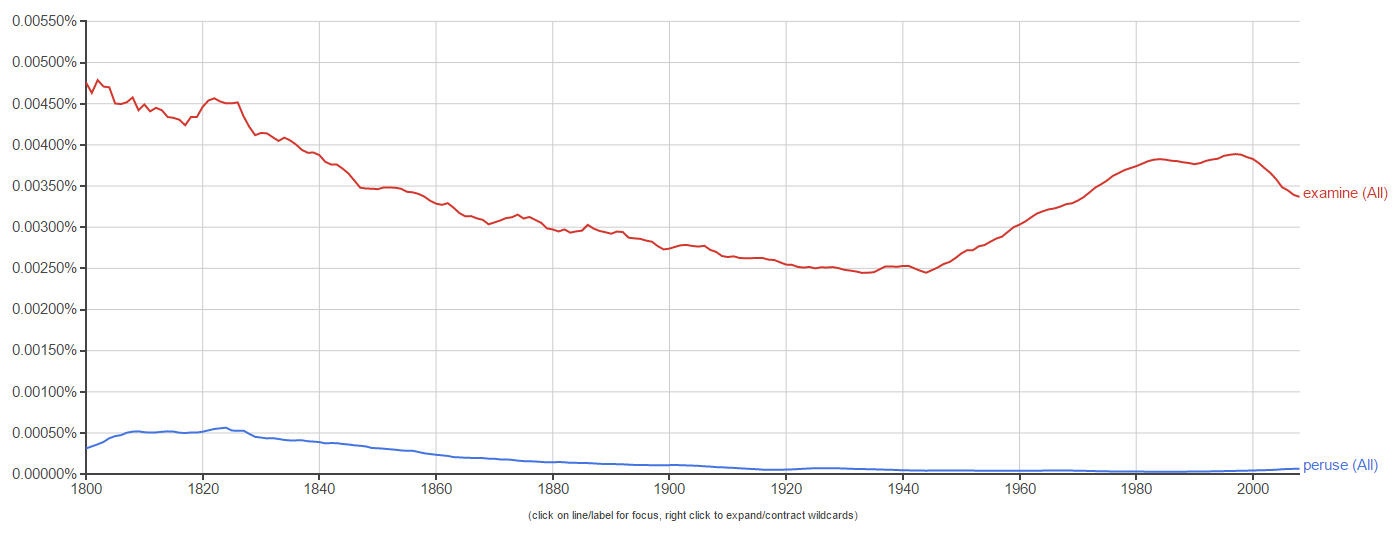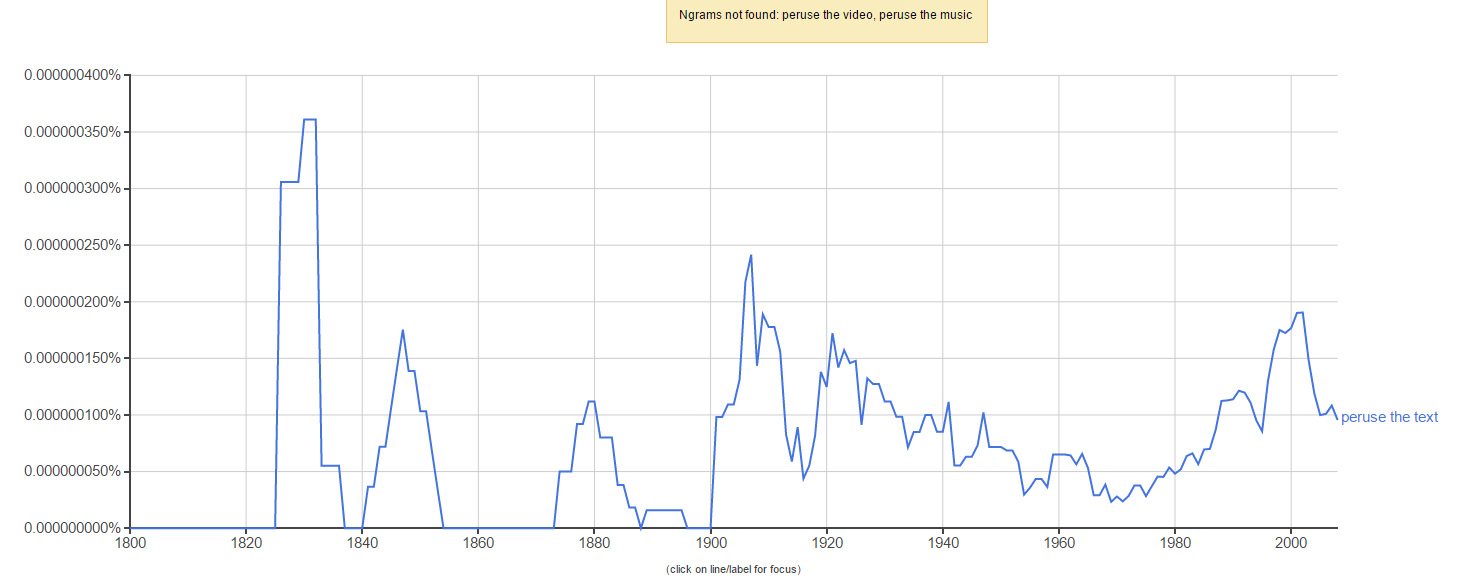This is not an English-specific question, but a general question about learning languages. I might recommend you take it to Language Learning Stack Exchange. Here's a similar question from there. That said, I will try to answer it here.
First of all, @MaulikV.'s advice is good. Start by perusing the dictionary entry to be sure you're employing the word grammatically correctly. Read the examples, too. Search for it on YouTube and see if anyone uses the word in a video.
Applying this to peruse, we see from the Wiktionary entry that there are several different senses. Here are a couple:
To examine or consider with care.
- 1847, Charlotte Brontë, Jane Eyre, Chapter IV:
Sitting on a low stool, a few yards from her arm-chair, I examined her figure; I perused her features.
(informal) To look over casually; to skim.
2001, Doug Stanton, In Harm's Way: The Sinking of the USS Indianapolis, page 35:
Haynes quickly perused the message, then took it to the captain on the bridge.
2005, Al Lovejoy, Acid Alex, page 98:
She asked Denise for the court file, which she fussed from her handbag. The woman perused it briefly and then beamed up at me.
(The fact that these two meanings are pretty much the opposite of each other is probably explained by the 150 years of difference between the examples given!)
Now try switching out peruse for other words you know that mean the same thing. Taking them from the definition you just read is a good start; going to the thesaurus works too. In the first sentence, you could replace "perused" with "examined", "considered", "looked at", "gazed at", "eyed", even "took in". In the next two examples it could be replaced by "read", "skimmed", "looked over", "glanced at". You might not be sure about every single synonym, but the idea is to use words you are comfortable with and to gauge how peruse should feel in a sentence. (Of course they won't be perfect synonyms, but that's not the point.)
Also, look carefully at the dates on those examples. The sense "to examine or consider with care" is dated 1847. You should assume that you might sound old-fashioned if you use it in this sense. But the sense "to look over casually; to skim" is from the 21st century. You should assume that you will fit right in if you use it in the second sense.
You can even conduct an Ngram search if you like. It's not that easy when you only have one term, but maybe compare it to a synonym you're more comfortable with. For example, here I compare "peruse" and "examine". "Peruse" is very rare compared to "examine" and has not been popular since the 1820s. So you make a note to yourself that it might be quite rare, not for everyday use.

Another very important aspect of using new words correctly is finding out the collocations. What sorts of things can I peruse? Judging by the above examples, I know I can peruse a person's features (or at least I could in 1847). I also know that I can peruse messages and court files, and probably any kind of written text.
Can I peruse music when I "consider" it? Can I peruse videos when I "examine" them? Use Ngrams for this too. For example, if you carry out the search "peruse the text,peruse the video,peruse the music" with the corpus English (2009) on Ngrams, you will see that only "peruse the text" has any examples. Therefore, I assume that I can't peruse music or videos.

Then, armed with this knowledge, use the new word where you might previously have used the ones you already knew. Be confident and experimental. You have to do so in order to become fluent. Trial and error is indispensable (this old video always comes to mind when I think about that). Watch for people's reactions and make notes. When I come across a new French word, I look it up in the dictionary and read the examples. Then I make a point of using it as soon as I can. For example, on French Language Stack Exchange, I might put it into an answer or a question. Sometimes I even add a small note at the end: "Feel free to suggest any corrections to make my French more natural in comments or chat." Every now and then, someone does so.
Once I was speaking with a Francophone on a plane. Having heard that the French look down on something or other (can't remember now), I decided to use a new word and asked him, « Est-ce vrai que les français méprisent X ? » "Is it true that the French disdain X? » He laughed and said, « Méprisent ? Bien, je dirais peut-être qu'on aime pas X. » "Disdain? Well, maybe I'd say that we don't like X." That instantly taught me that the word I'd used was too strong. So I mentally corrected mépriser for the next time I'd take it off the shelf. Did it do me any harm to use it wrong? No. It was a funny moment, and he understood what I meant, knowing I wasn't a native speaker. The people you meet every day already know this about you, so they'll be forgiving. You have room to try new things. Don't worry about sounding pretentious.
Even English speakers try to improve their vocabulary this way. There's an episode of The Simpsons where Carl has a word-a-day calendar to improve his vocabulary. On this particular day his word is "concur", which the dictionary will tell you means "agree". So instead of "I agree," he says "I concur." Does it sound a little silly? Maybe it will, maybe it won't. You just have to try and find out.
Okay, finally, specific insights about "peruse". It's not a common word, as we saw in the Ngram above. Despite the "informal" sense of skim, even when used informally it has a somewhat ironic sound because it's associated with language of a higher register. I would mostly use it when trying to create that effect or when writing very formally or about characters from 200 years ago. A native speaker might sound pretentious using it. But again... that shouldn't stop you from trying it out. :)


